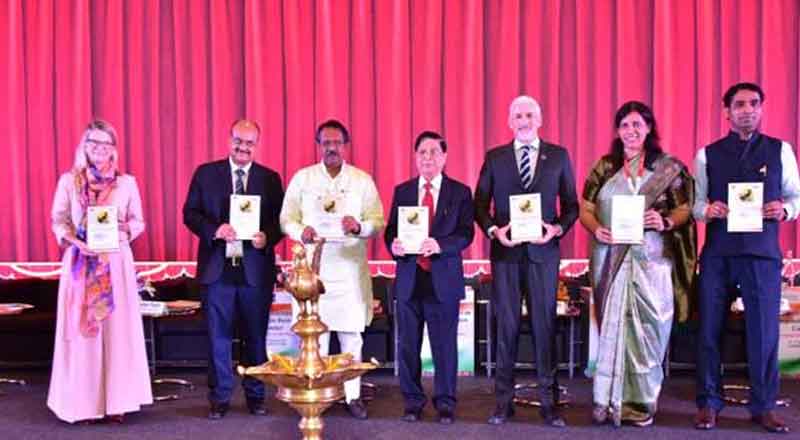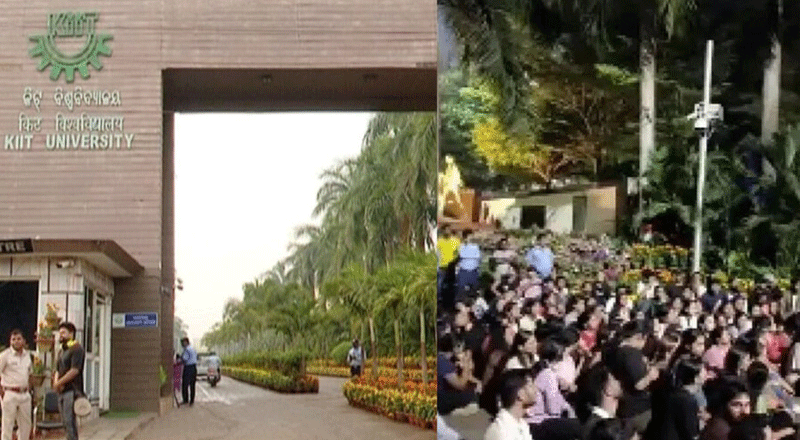Union Minister of State for Corporate Affairs and Road Transport and Highways, Shri Harsh Malhotra and Justice (Retd.) Shri Dipak Misra, 45th Chief Justice of India, inaugurated the flagship ‘National Conference on Responsible Business Conduct 2024- Escalating Environmental, Social, and Governance (ESG) for Viksit Bharat’ in New Delhi, today. The conference was organised by the School of Business Environment, Indian Institute of Corporate Affairs (IICA).
In his keynote address, Shri Malhotra emphasised on the government’s unwavering commitment to fostering responsible business practices that are crucial for sustainable development and highlighted the essential role of ESG, particularly inclusiveness in achieving Viksit Bharat and urged Indian businesses to lead by example in adopting ethical and sustainable practices, thereby positioning India as a global leader in responsible governance.
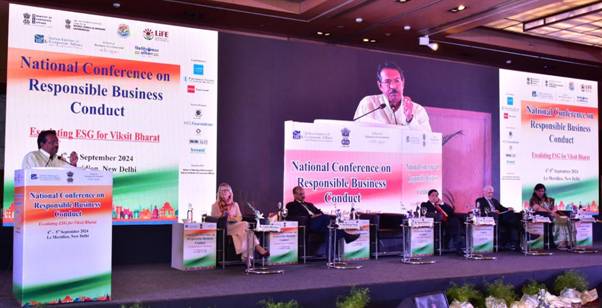
Justice (Retd.) Dipak Misra, Former Chief Justice of India, delivered a profound special address, focusing on the ethical imperatives of corporate governance. He underscored the crucial role of crafting ESG policies that will act as the fulcrum in ensuring that businesses operate within the bounds of justice and fairness, aligning their practices with the broader goals of social and environmental responsibility.
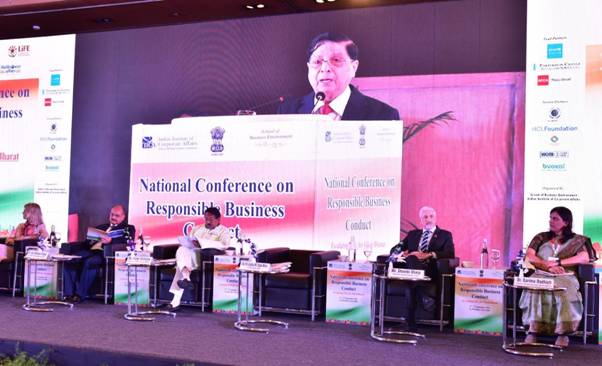
He further elaborated that ESG is a philosophical thought that must be imbibed and should not be treated as a mere legal compliance task. Justice Misra reminded the august gathering that the Supreme Court of India in National Textile Workers’ Union v. P R Ramkrishnan recognised the new concept of a corporation adopting the socialistic pattern of society as the goal of the country’s economic and social policies. He mentioned that the maintenance of Environmental Ethicality is a categorical imperative as value addition of any business entity depends upon its ‘Green Behaviour’ and to that extent ESG has now become a competitive barometer for reputation. He suggested that it is the time for the nations to take a pledge to make an endeavour to change the philosophy of the commercial concerns at the highest level and to make every corporate and individual aware of new lexicon that the thinkers of the world are developing and expecting every entity to remain ‘Argus-eyed’ to be progressively complaint and not to take shelter under any adroit intent to bring in expeditious institutional solutions.
In his welcome address, Dr. Ajay Bhushan Prasad Pandey, Director General & CEO, IICA, extended a warm welcome to the distinguished speakers and participants, stressing the importance of responsible business conduct in driving India’s sustainable development agenda. He highlighted that the IICA through its School of Business Environment has been promoting the responsible business conduct through policy advocacy, research, and capacity building programmes for public and private sector on aspects of ESG, Sustainability, CSR, Business & Human Rights, Business & Biodiversity Conservation, Sustainable Finance etc. The annual national conference on responsible business conduct is a testament of the IICA’s commitment to the Viksit and Sustainable Bharat.
The inaugural session by Professor Garima Dadhich, Head, School of Business Environment, IICA, set the context for the conference.
Mr. Shombi Sharp, United Nations Resident Coordinator to India, in his special address highlighted the importance of responsible business conduct in achieving the vision of a Viksit Bharat (Developed India) and emphasised the need for collaborative efforts between the government, private sector, and civil society.
The inaugural session featured special addresses highlighting pressing issues related to responsible business conduct. Ms. Cynthia McCaffery, UNICEF Country Representative India shared insights on the global relevance of ESG principles in fostering inclusive growth and incorporating meaningful sustained livelihood integrated goal in achieving developed India; and Ms. Helen Brand OBE, Chief Executive, ACCA focused on the evolving role of governance in promoting responsible business practices and highlighted the significant role that India plays on the global stage in advancing ESG-driven development. The inaugural session brought together eminent leaders, policymakers, corporate executives, and international experts to deliberate on the critical role of businesses in driving responsible and sustainable development.
On the occasion, the book ‘Embracing ESG in India’ by Dr. Garima Dadhich & Dr. Ravi Raj Atrey was also released during the inaugural session. The book offers a comprehensive guide on ESG practices in the Indian context, it is a compilation of case studies of the torch-bearers, promoters and initiators of change. Additionally, the online Data Portal on Business Responsibility and Sustainability Reporting (BRSR) was launched, providing an essential tool for businesses and stakeholders to access critical data and insights for responsible business conduct.
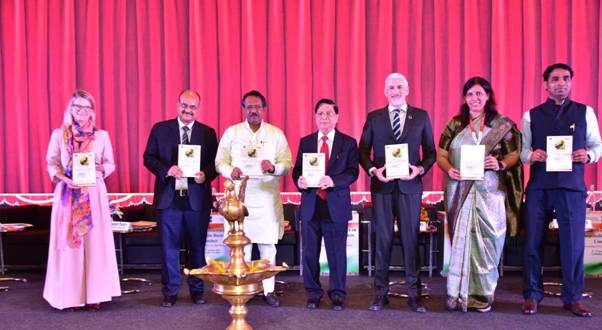
The first insightful high-level panel discussion on ‘Responsible Governance: The Leadership Dialogue’ brought together some of India’s most distinguished leaders from the government and private sectors to discuss the critical role of responsible governance in driving sustainable and equitable growth. The Distinguished speakers include; Dr. V. Anantha Nageswaran, Chief Economic Adviser, Government of India; Mr. Inder Deep Singh Dhariwal, Joint Secretary, Ministry of Corporate Affairs; Mr. Praveen Kumar, Former Secretary, Ministry of Skill Development and Entrepreneurship, Government of India; Mr. Arun Maira, Former Member, Planning Commission of India and Former Chairman, Boston Consulting Group, India; Mr. Bharat Wakhlu, Former Resident Director, TATA Sons; Ms. Megha Garg, Director, Happy Forgings Limited. The Panel was moderated by Professor Garima Dadhich. The panel delved into the challenges and opportunities associated with embedding responsible governance within the corporate framework, especially in the context of India’s ambitious goal of becoming a developed nation — Viksit Bharat.
The panel concluded with a consensus on the need for a multi-stakeholder approach to governance that includes collaboration between the government, private sector, and civil society. The insights and recommendations from this discussion are expected to shape the subsequent sessions of the conference, driving forward the agenda of responsible business conduct in India.
The Second High Level panel discussion centred on the theme ‘Nature Restoration: Role of Business’. The panel featured key industry leaders: Mr. Vishal Dev, Director of Sustainable Business at WWF India, Mr. Bose Varghese, Senior Director of ESG at Cyril Amarchand Mangaldas, and Mr. Siddharth Edake, Senior Programme Manager for Food, Land, and Water at WRI India, moderated by Mr. Suneel Padele, Senior Technical Advisor at the United Nations Global Compact Network India.
The momentum continued with an insightful third high-level panel focused on ‘Sectoral Adaptation of the National Guidelines on Responsible Business Conduct in the Ready-Made Garment Sector.’
The session began with Mr. Alay Barah, Director of Innovative Change Collaborative Services Pvt. Ltd. (ICCSPL), setting the context by outlining the importance of adapting national guidelines to the specific needs and challenges of the ready-made garment sector. The panel featured prominent voices from both industry and policy-making circles. Dr. Naresh Tyagi, Chief Sustainability Officer at Aditya Birla Fashion & Retail Limited, Mr. Abhishek Bansal, Vice President of Sustainability at Arvind Ltd., Mr. Shikhar Jain, Executive Director of CII – CESD, Mr Pradeep Narayanan, Director Partners in Change and Mr. Naveen Sainani, Joint Honorary General Secretary of the Clothing Manufacturers Association of India Ltd. The discussion was expertly moderated by Mr. Shankar Venkateswaran, Adjunct Faculty at the Indian Institute of Corporate Affairs, who facilitated a dynamic exchange of ideas and best practices among the panelists.
The fourth session delved on ‘Just Transition: Balancing Growth, Equity & Sustainability.’ This session addressed the complex challenge of achieving sustainable development while ensuring that economic growth is inclusive and equitable. Moderated by Dr. Bhaskar Chatterjee, Senior Adviser on CSR & ESG at Dua Consulting and Deloitte India, the panel brought together a diverse group of experts who provided in-depth insights into the multidimensional aspects of a just transition. The high-level panel comprised of Ms. Bharti Birla, Enterprise Development Specialist at the International Labour Organization (ILO), Ms. Geetanjali Master, Head of Public & Private Partnership at UNICEF India, and Mr. Viraf Mehta, Adjunct Faculty at the IICA.


